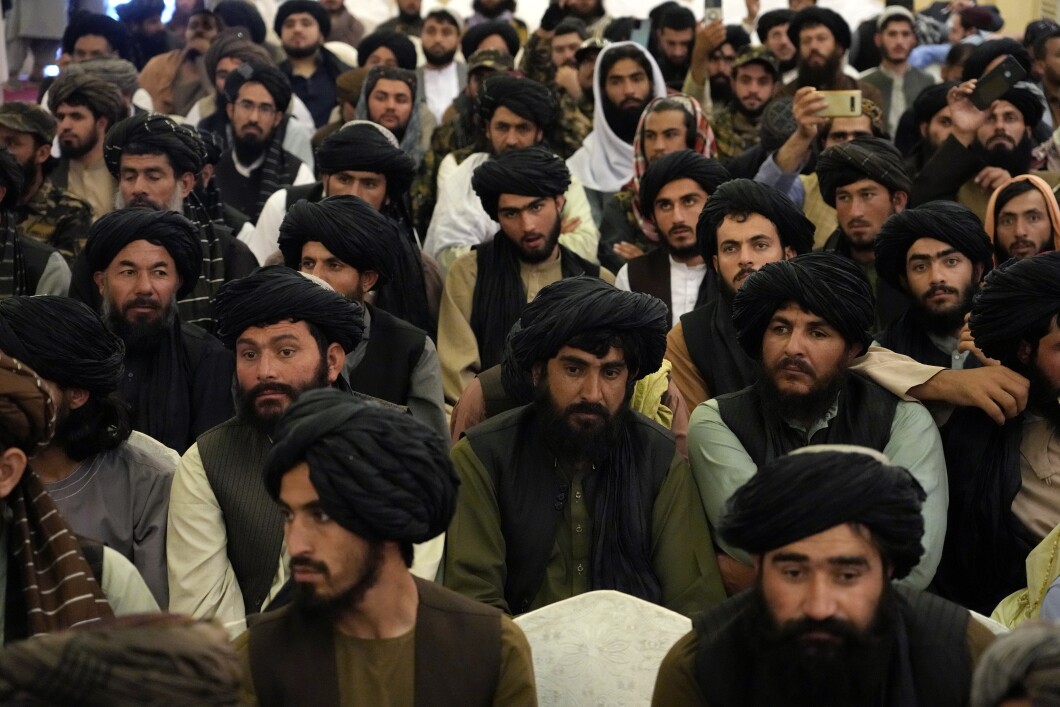
Taliban bureaucrats lamented their new positions in the government in a series of exclusive interviews with the Afghanistan Analysts Network. The interviews provided a comical window into the lives of former mujaheddin fighters.
Five different Taliban fighters, ranging in age from 24 to 32, who spent between six and 11 years in the Taliban, gave interviews to the Afghanistan Analysts Network. They talked about their adjustment to life after the Taliban’s victory.
Although differing in some aspects, the fighters painted remarkably similar pictures. They complained about the switch to an 8-hour work day, traffic, and internet addiction. Their confusing new lives post-war led all of the interviewees to lament how much they missed the “days of the jihad.”

“There is another thing I dislike and that’s how restricted our lives are now, unlike anything we experienced before. The Taliban used to be free of restrictions, but now we sit in one place, behind a desk and a computer 24 hours a day, seven days a week. Life’s become so wearisome; you do the same things every day. Being away from the family has only doubled the problem,” Huzaifa, a Taliban sniper and father of two, said.
“What I don’t like about Kabul is its ever-increasing traffic holdups. Last year, it was tolerable but in the last few months, it’s become more and more congested. People complain that the Taliban brought poverty, but, looking at this traffic and the large number of people in the bazaars and restaurants, I wonder where that poverty is,” Omar Mansur, a former Taliban commander and father of five, told the Afghanistan Analysts Network.
TWITTER STRIPS TALIBAN OF BLUE CHECKMARKS PURCHASED VIA PREMIUM SERVICE: REPORT
“Another thing I don’t like, not only about Kabul but broadly about life after the [war], are the new restrictions. In the group, we had a great degree of freedom about where to go, where to stay, and whether to participate in the war,” he added. “However, these days, you have to go to the office before 8 AM and stay there till 4 PM. If you don’t go, you’re considered absent, and [the wage for] that day is cut from your salary. We’re now used to that, but it was especially difficult in the first two or three months.”
The interviewees, all of whom grew up in rural villages, expressed their astonishment at the scale of Kabul.
“After we arrived in Kabul, we were stunned by its complexity, its expanse, its size. We didn’t know where to go. Everything was strange to us and of course, we were strange to the local people – to the extent that they were afraid of talking loudly to us. When we came to our hawza [police district] and saw the compound, the weapons and the security measures, it was unbelievable how they’d abandoned such places without firing a single bullet,” Huzaifa said. “We were stunned by the cowardice of the [former] army and police. If even a very small number of them had tried to fight us, we couldn’t have made it to Kabul for years, given its complexity and the weapons they had. Praise be to Allah, [the victory] was directly because of His help.”
One fighter told of another new, modern problem the Taliban have run into: an obsession with Twitter and the internet.
“In our ministry, there’s little work for me to do. Therefore, I spend most of my time on Twitter. We’re connected to speedy Wi-Fi and internet. Many mujaheddin, including me, are addicted to the internet, especially Twitter,” Abdul Nafi, 25, a Taliban fighter and father of two, said.
The fighters consistently noted the degenerative effect their new conditions were having on morale, with access to new luxuries causing many to abandon their previously ascetic existence.
“If you ask me why I’m unhappy in the aftermath of the fatha, it’s that we immediately forgot our past. Then, we had only a motorcycle, a mukhabira, [a type of Walkie-Talkie] and a mosque or madrasa. Now, when someone’s nominated for a government job, he first asks whether that position has a car or not. We used to live among the people. Many of us have now caged ourselves in our offices and palaces, abandoning that simple life,” Kamran, 27, a Taliban commander and father of two, said.
CLICK HERE FOR MORE FROM THE WASHINGTON EXAMINER
The commander went so far as to claim that the new struggles in peacetime were more grave to the Taliban than those they encountered during the war, with the “real test” only beginning following their conquest.
“I’m very concerned about our mujaheddin. The real test and challenge was not during the jihad. Rather, it’s now. At that time, it was simple, but now things are much more complicated. We are tested by cars, positions, wealth and women. Many of our mujaheddin, God forbid, have fallen into these seemingly sweet, but actually bitter traps,” Kamran said. “They forgot their old comrades on whose shoulders they secured victory and instead seek the praise and approval of sycophants. The old, the real mujaheddin doesn’t know the meaning of sycophancy. So they are sidelined, while their places are filled by people who, until the past year, were against us in so many ways.”






